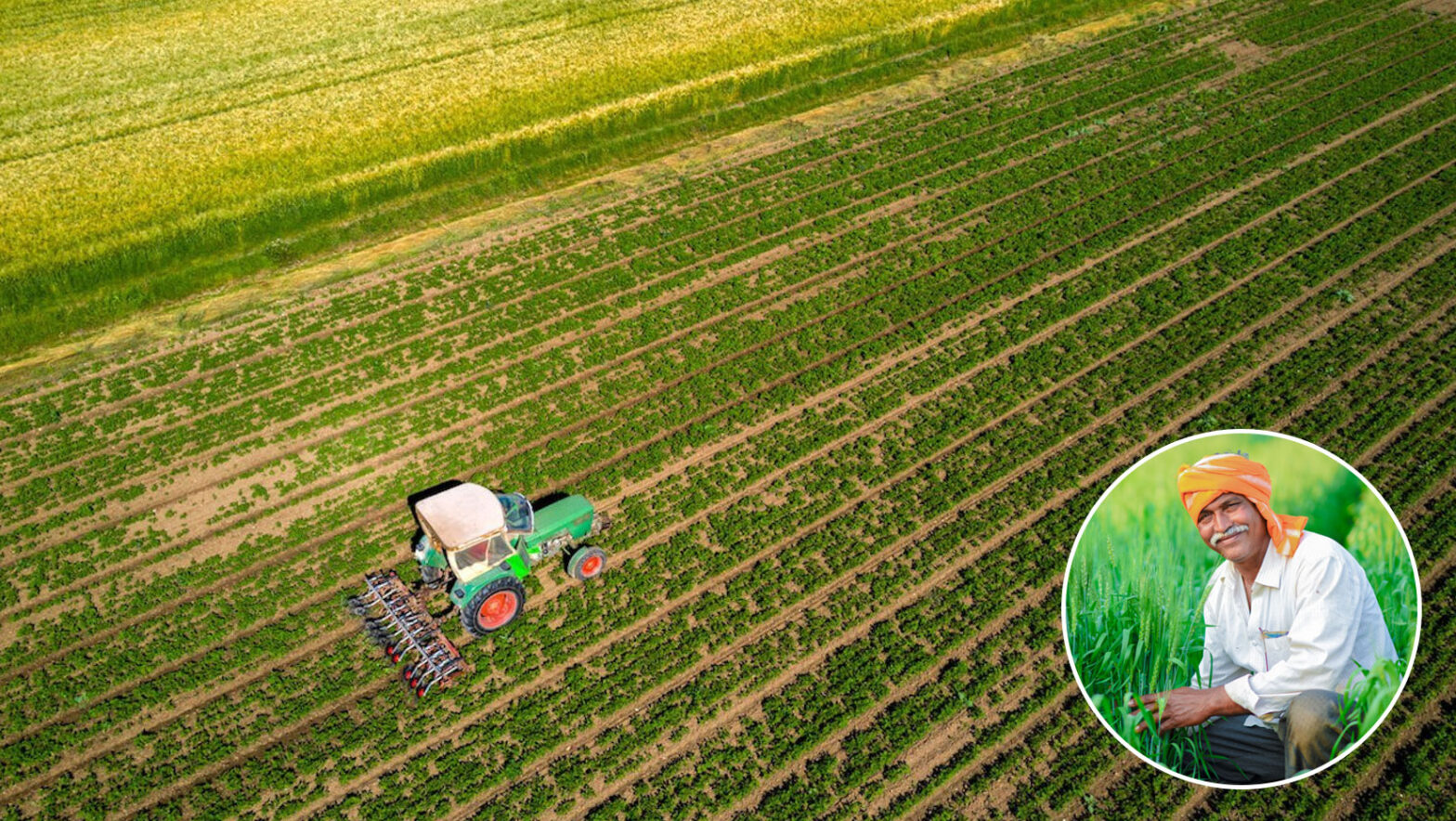
A Complete Guide To Start Farming In India
September 7, 2022
Around 58% of the Indian population depends on agriculture as the primary source of livelihood. According to the economic survey of India, total food production in India was recorded at 296.65 million tonnes in FY20. These statistics reveal that farming in India is a prospering industry and will grow in the future also.
If you want to be part of this agriculture revolution but don’t know where to start and are looking to improve your farming approach, we are here to help. This article will discuss all the prerequisites to start your farm in India and the best practices that you must follow to get the best yield.
8 Essential factors consider before you start farming in India
Even though India is a leading country in the agricultural industry, commencing a farm in India is not easy. Just like starting any other business, farming also requires a lot of planning, researching, testing, and so on. Just like a home cannot be built in a day, you cannot start a farm in one day.
So let’s look at some of the factors you need to know before starting farming in India.
1. Formulate a Strategic Plan
Planning is the first and most crucial step in your agricultural journey. You must create a comprehensive and reliable plan before you get into the nitty-gritty of farming. Your farming plan should include the following things:
- Short-term and long-term goals – Having your goals predefined is crucial as they lay the foundation for your farming journey. Write down all the short-term and long-term goals in your plan and use these goals as the basis for further planning.
- SWOT analysis – Know your Strength, Weakness, Opportunities, and Threats. SWOT analysis will provide you with a rough idea of where you stand in your farming journey and where you need to go. Based on this analysis, you can take advantage of all the opportunities you have. Also, you can draw actionable ideas to deal with the potential threats.
- Finances – Plan out your finances in advance. Farming in India consists of both one-time investments or fixed costs and recurring expenses or variable costs. The fixed expenses included the cost of your land, farming equipment, and the cost of buying animals. Regular expenses include the cost of seeds, fertilizers, irrigation systems, electricity bills, etc. Make a rough estimate of all these costs before you set out.
2. Land Consideration
If you want to cultivate crops or start animal husbandry, looking for suitable land and the climatic condition is essential. Therefore, you must consider the following factors while deciding land for farming in India:
- Fertility of land – Land is like bread and butter for practical farming. The growth of vegetation, the health of animals, and your product’s quality depend primarily on the land. Thus, make sure the ground is fertile and fulfills the standard requirements such as Ph level, salinity, etc.
- Topographical feature of soil – Study the topography or soil quality of your land. The type of soil, level of fertility, soil temperature are some of the features of soil that you must consider. The topography of soil will broadly impact the level of yield. For instance, loamy and silty clay soil is most beneficial for banana cultivation, but sandy and clayey soil is not.
- Conduct soil testing – Taking samples from different land areas can help you analyze soil quality, nutritional level, and soil fertility. As a result, you can make the best decision after testing and analyzing.
3. Climatic Factors
Monsoon is a vital source of agriculture in India as farmers depend on a suitable climate for an excellent yield. Furthermore, there are seasonal crops that grow under specific climate conditions. Thus, studying climatic conditions before you select your crops is imperative.
- Seasonality – Study India’s most prevalent season and select the best season that aligns with your crops and land conditions. For instance – Kharif crops are best grown in the rainy season (July-September). While for pulses and vegetables, the summer season is most suitable.
- Examine the effect of climate change – Increasing deforestation, pollution, global warming all these issues impact your cropping pattern and livestock. You must be aware of these issues before starting, as these can affect your agricultural business.
4. Crop Selection
Now comes the most exciting factor. Deciding what you want to grow is the core part of your agricultural journey. Of course, the cropping selection depends on various factors such as climate, land, and finances, which we have discussed earlier. But other factors highly impact your cropping yield. So let’s have a look at them.
- Water
- Do you have enough water sources such as tanks, tube wells to irrigate your crops?
- Do you receive adequate rainfall?
- What is water quality, and do you have access to testing the water quality to generate a good yield?
- Farming equipment and technology
- Do you have access to farming equipment such as harvester, tractors, etc.?
- Is the technology you need for cropping economically viable and feasible?
- Expected profitability
- How much revenue are you expecting to generate from your crops?
- Does the profit cover the costs?
- Market demand of crops
- Is the market demand high for crops you want to grow?
- Do the crops have the potential to export on a large scale?
- Do you have access to an organized marketing system to connect with intermediaries and sell your crops to different regions in India?
These are some of the questions you should ask yourself when setting out on a farm in India.
5. Decide which animals to buy.
If you want to start animal husbandry alongside your agricultural farm, then you must consider these factors before you buy livestock in India:
- Breed – Select a suitable breed. For example – cattle, goat breed, chicken, etc.
- Production capacity – Check milk capacity, egg capacity, meat production, etc.
- Adaptability – Does the breed adaptable to local conditions and weather?
- Feeding habits – Do you have access to enough resources to feed them with nutritious supplements?
- Hygiene maintenance – Do you have access to sanitation and hygiene facilities near the farm?
6. Choosing the best fertilizers and pesticides
Other than favorable climatic conditions, your crop and soil need fertilizers to grow, and your animals need supplements to get adequate nutrition. Therefore, you should consider these factors while deciding on fertilizers and pesticides:
- Decide what fertilizers are needed by your crops and livestock – You must choose highly nutritious fertilizers and fulfill the daily requirements of crops and livestock. With increasing environmental issues, it is best to choose organic fertilizers and organic feeds for your livestock. These organic products are loaded with micro and macronutrients and are environmentally safe.
- Choose the most suitable pest repellents – Your crops and livestock may catch infection or diseases if you do not use reliable and effective pesticides in and near your farms. Natural insecticides and pesticides are most suitable to keep your farm away from pests, insects, and other harmful diseases.
- Analyze cost – Making a rough estimate of all the costs and expenditures for fertilizers, pesticides can help you choose the most reasonable and effective supplements and fertilizers. While considering costs, you can also view the cost of buying readymade material or the price you might incur if you make your fertilizers and supplements.
7. Human Resources
You may decide to start your farm solely or may recruit labor. When you are selecting your workforce, you can ask these questions to yourself:
- Does the labor have the required skills? For example – crop sowing skills, forecasting ability, etc.
- Do they have enough knowledge about farming techniques, animal rearing, and how to handle equipment?
- Do they know how to work under extreme conditions? For example – Floods, excess rainfall, high temperature, etc.
8. Storage facility at or near the farm
Farmers need a warehouse for the following reasons:
- First, to store farming equipment, fertilizers, animal feed and supplements, raw materials, etc.
- Holding and preserving farm produce such as foodgrains, fruits, vegetables, milk, eggs, etc. There is a time gap between the production and consumption of the goods. A farm’s storage unit helps farmers to keep their produce safe during that time gap.
Framers should choose a storage unit that is affordable, spacious, hygienic, and accessible. Having storage far away can lead to extra transportation expenses and may get exposed to in-transit damage.
These are the essential factors that every farmer must consider before they start their farm in India. Now, let’s look at some of the initiatives taken by the government of India to help farmers in their farming journey.
Government initiatives
The government of India has started a lot of schemes and policies to ensure farmers get access to required inputs, guidance, training, and a marketplace. Some of the most effective farming initiatives are discussed below:
Land (Agriculture & Rural) Development Banks
- These banks provide medium and short-term loans for agricultural activities in India.
Kisan Credit Card Scheme (KCC)
- Provide adequate and timely support from the banking system to the farmers for their short-term credit needs.
- Helps farmers buy inputs during the cropping season.
Agricultural insurance schemes
These schemes aim to provide insurance against various anomalies
- National Agricultural Insurance Scheme
- WBCIS – Weather Based Crop Insurance Scheme
- MNAIS – Modified National Agricultural Insurance Scheme
Krishi Vigyan Kendra (KVK):
A district scientific organization that works on technology generation, refinement, and dissemination.
- Organize front-line demonstrations, training programs, exhibitions, field days and provide agricultural literature to the farmers.
- Provide input support for farmers.
Kisan Call Center (KCC):
- It’s an online agricultural advisory service started by the government of Ina from where farmers can access information on crops, livestock, fisheries, inputs, credit, government scheme benefits.
- Use toll-free number 1800 180 1551 or 1551 from 6 A.M. to 10 P.M. except on Sundays and Gazetted Holidays.
Start farming today
We have covered the essential factors that every farmer must consider before starting their agricultural journey. However, farmers should choose a sustainable and organic farming approach due to alarming environmental issues. Such an approach to farming is safe for the environment and also for all living organisms. Just starting a farm is not enough; creating a sustainable farm is more important.
So, we recommend you make your choice and contribute towards a better future by adopting organic farming.



